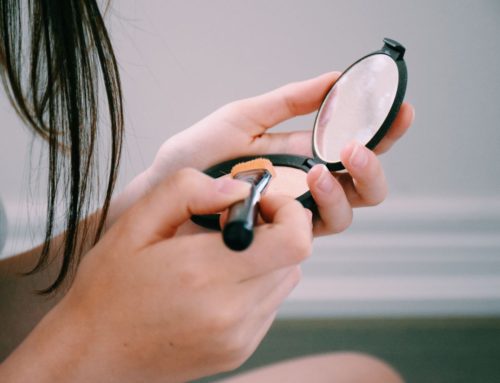From Greatist.com
Whether you’ve just pulled the plug on a relationship or your former paramour has ripped your broken, still-beating heart straight from your chest, mixed metaphors aren’t helping the fact that breakups suuuuck.
It’s amazing that for all the dating books and apps out there, there are so few guides for what to do when things don’t work out. But know that you’re not alone in wondering how to get over an ex and move on with your life—and this can be your place to begin.
1. Don’t avoid the grieving process.
It’s totally normal to feel like someone died when you’re getting over a very meaningful romantic relationship. When she discusses breakup recovery, Fran Walfish, Psy.D., a Beverly Hills family and relationship psychotherapist, even refers to Elisabeth Kübler-Ross’s famous five stages of grief: denial, anger, bargaining, depression, and acceptance. That’s why Walfish suggests you deal with the pain head-on.
“If you distract yourself, you’re feeding the denial, and that’s not helpful,” Walfish says. “Allow yourself to feel anything genuine that comes up and do not censor.”
There’s also real value in allowing yourself those good, long crying jags. “Tears contain cortisol, so when you cry, you really are literally getting it out,” says Chloe Carmichael, Psy.D., author of Dr. Chloe’s 10 Commandments of Dating.
2. Relieve your pain.
Although it may sound odd, relationship pain isn’t just metaphorical—you may be able to treat it as you would a physical ache.
“I’ve seen some studies that have shown that taking Tylenol in the early stages can help because some of the same pain receptors that are activated by physical pain can also be activated by the emotional kind,” Carmichael says.
Massage, which has also been shown to reduce levels of that stress hormone cortisol, is another way to potentially ease your pain. “One thing that we miss when we go through a breakup is being touched and held, having this positive human contact,” Carmichael says. “A massage isn’t the same as a romantic experience, but it is a positive, intimate, compassionate form of touch that can really help people.”
3. Reach out to friends and family.
Besides just listening to you cry (and rage) about your ex, the right people can do two things for you at this crucial period: Keep you company and—after the first wave of grief—distract you from your ex.
Carmichael suggests you tell your friends what’s up and ask them to help you out by having someone come around every day of the week (or whatever amount of people-time is comfortable for you).
“I’ve even had clients who wanted to have a friend stay over with them for a night or two, especially if they were going through a breakup with someone they used to live with,” she says. But make sure these are people who will add some positive energy to your life, Carmichael says—the last thing you need is someone who might bring you down further.
“Gravitate toward people who will just listen compassionately without telling you what to do,” Walfish says. You may be surprised to find that you don’t need to avoid your friends who are coupled up, however. “A lot of happily married couples will take you under their wing, invite you as a third, and won’t care that you don’t have a fourth partner.”
If revealing your vulnerabilities to friends is hard, or if you’re concerned that this breakup is part of a pattern, therapy may be a good alternative to see you through this period. “You might give yourself a safe and supportive space that doesn’t carry any other emotional baggage with it by seeing a professional,” Carmichael says.
4. Unfriend the ex.
It can be particularly tricky to get over someone you work with and still have to see every day, or someone whose friend group overlaps with your own.
“It’s almost like a dieter who is working in a bakery—it’s very tempting,” Carmichael says. But it’s up to you to remove yourself from that temptation in the most polite way possible. Explain to your ex that, though you like and respect them, you will be doing your best to be distant and cordial. You can say, “Since we can’t be together, I need to try to have some really strong boundaries.”
That goes for social media too. If you’re trying to get over someone you love, you don’t need all of your devices bringing their name and face to the forefront of your brain all day long. Don’t let the fear of offending your ex stop you from hitting “unfriend.”
“You can send a note explaining that this is not anything hostile; in fact, you like the person very much, and this is just helpful for you as you try to move forward,” Carmichael says.
5. Distract yourself.
After a period of grief, you can try to be proactive about digging yourself out of those wallowing depths and living life as though you don’t care about the ex—even if you do (and of course you do).
“Go to movies, dinners, restaurants, theater, museums, go to the spa, get out of your environment, go on vacations,” Walfish advises. Not only does this get you unstuck from your rut, but it also sets you up for the next step “because you’re more desirable when you’re busy, and you have a lot going for you.”
As much as heartbreak might turn you into a champion binge-watcher, you can also try to get up and do things while bingeing on audiobooks and podcasts. “An audiobook can actually help you to feel less alone, and you can have a positive message running in the background, even if you’re not paying super-close attention to it,” Carmichael says.
6. Find your rebound.
While “rebound” can sound like a pejorative term, we all know someone who found epic love right after a breakup. (Raises hand.) Whether you’re truly looking for the next candidate or not, Carmichael says there is value to putting your profile back up on dating sites.
“There’s nothing wrong with setting up a profile and starting to accrue the attention of some other people who might be noticing you,” she says. “There’s no law that says you have to respond to people right away. Being on a dating site can make you feel better about yourself and reminds you of the reality, which is that there’s a whole big world out there full of people who would like to meet you.”
When you are ready to jump back into the game—either for a fling or something deeper—be as self-aware as possible. Walfish warns: “I think it’s wise to take your time and choose wisely and carefully. It decreases the chances of repeating the same mistakes that got you in trouble the first time.”
Exactly how long does it take to get over someone?
Don’t stress out about reaching some sort of time limit on this. There is no right answer.
“It’s so different for everyone,” Walfish says. “It depends how much of your heart and soul you gave and how long it takes you to heal. I don’t think the answer is easy or tangible. You just have to know yourself well.”





